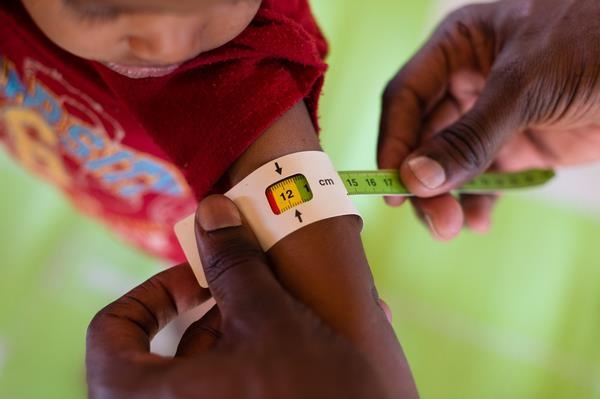Undernutrition in its various forms casts a long shadow over Nigeria’s present and future. From the stunted growth and weakened immune systems of children to the reduced productivity and increased healthcare burdens in adults. The consequences are profound and far-reaching. While global efforts and commitments offer frameworks (e.g., the Sustainable Development goal Sustainability), a targeted and strategic approach deeply rooted in Nigeria’s unique context is essential to breaking this cycle and nourishing the nation’s potential.
Understanding the drivers of malnutrition in Nigeria is crucial for formulating effective strategies. As the UNICEF framework highlights, the immediate causes of inadequate dietary intake and illness are often symptoms of deeper, underlying issues. In Nigeria, these include widespread poverty limiting access to diverse and nutritious foods, inadequate healthcare infrastructure and practices, poor sanitation and hygiene contributing to infectious diseases, and suboptimal infant and young child feeding practices (IYCF). Furthermore, basic societal factors such as food insecurity due to agricultural challenges and conflict in certain regions, low levels of maternal education and empowerment, and weaknesses in governance and infrastructure exacerbate the problem.
A strategic approach to tackling malnutrition in Nigeria must therefore be multi-sectoral, evidence-based, and context-specific. It requires a coordinated effort across various government ministries, health, agriculture, education, water resources, social development, finance, and planning as well as robust engagement with non-governmental organizations, the private sector, communities, and individuals.
Despite a growing global recognition of the importance of adequate nutrition for economic and social development, Nigeria has shown paucity of data to comprehensively assess the impact of policies and programs aimed at combating malnutrition. Available data showed poor nutritional indices, indicating slow progress in meeting national/global targets. A pre-requisite for development of effective nutrition policies and programs is the recognition of undernutrition as the outcome of various interacting shortcomings that fall into the responsibility of several government sectors and other key stakeholders. This indicates that malnutrition is a multi-sectoral problem that requires cross-sectoral solutions and concerted efforts that involve the key line ministries (health, agriculture, education, social affairs, economic development, and infrastructure), leading governmental and non-governmental organizations, and the private sector.
Establishing the National Council on Food and Nutrition Security has been a strategic approach in mitigating the current war against malnutrition in Nigeria. Chaired at the highest level of government, this council is aimed at ensuring policy coherence, coordination, and accountability across all relevant sectors. It would drive the National Nutrition Policy agenda and monitor progress towards set targets. All of this is being done currently by the office of the vice president, it is called the Nutrition-774 initiative. While the Nutrition-774 initiative exists under the Vice President’s office, awareness among frontline nutrition professionals remains limited, creating a gap in communication and stakeholder inclusion. Community participation should be encouraged and involvement of relevant stakeholders. Brazil’s establishment of the National Council for Food and Nutrition Security (CONSEA), directly linked to the President’s office, played a crucial role in the country’s significant progress in reducing malnutrition. CONSEA brought together government ministries, civil society organizations, and researchers to formulate and monitor the national food and nutrition security policy. This multi-sectoral approach ensured policy coherence and accountability, driving the agenda and overseeing progress (Oliveira et al. 2020)
Strengthening Nutrition-Specific Interventions has proven effective in combating malnutrition in the WHO Eastern Mediterranean Region. Nigeria will experience a shift if it prioritizes and invests in scaling up high-impact interventions, particularly during the critical “1000-day window” from conception to a child’s second birthday. These include promoting exclusive breastfeeding, improving complementary feeding practices, providing micronutrient supplementation (vitamin A, iron, zinc), deworming, and managing acute malnutrition. Strengthen Maternal and Child Health Services will Improve access to quality antenatal care and postnatal care, including nutrition counselling for pregnant and lactating women, and promote healthy birth practices. Peru achieved a remarkable reduction in child stunting rates by prioritizing and scaling up evidence-based nutrition-specific interventions. Key strategies included promoting exclusive breastfeeding through community health workers and mass media campaigns, providing iron supplementation to pregnant women and young children, and implementing home visits for growth monitoring and nutrition counselling.
In 2018, the government of India launched Poshan Abhiyan as an umbrella program to support nutrition specific interventions for children, adolescents, and mothers. Besides, the Abhiyan embraces the real-time monitoring of the ongoing nutrition programs in the country, improved training, and capacity building of frontline workers on nutrition (Anganwadi workers, Accredited Social Health Activists) through incremental learning approach and establishment of nutrition resource centers. There was a significant reduction in the rate of undernutrition afterwards.
Implementing Nutrition-Sensitive Strategies and poverty reduction has remained a highly recommended approach to the systemic fight against malnutrition. Implementing these frameworks is possible through Enhancing Food Security and Diversifying Diets, Implementing policies and programs to improve agricultural productivity, promoting the production of diverse and nutritious foods, and strengthening food systems to ensure access to affordable and healthy diets for all Nigerians. As examples of promising nutrition policies rooted in different sectors, using Brazil as a case study, in one decade Brazil managed to almost halve the prevalence of stunting among children under the age of five from an estimated 13.5 percent in 1996 to 6.8 percent in 2007. Brazil Achieved this by depending on the maintenance of economic and social policies that favored an increase in purchasing power among the poor, and on public investments aimed at completing the universalization of access to essential services such as education, health, and sanitation among the Brazilian population.
Brazil’s success in nearly halving child stunting within a decade was significantly attributed to the Bolsa Família conditional cash transfer program. This poverty reduction initiative included health and nutrition components, ensuring that vulnerable families had increased access to nutritious food and healthcare services. This highlights the impact of integrating nutrition into broader social protection programs to enhance food security and diversify diets.
Implementing policies and programs that promote women’s education, economic empowerment, and decision-making power within households. Educated and empowered women are more likely to adopt positive nutrition and health practices for themselves and their families. Studies have shown a strong correlation between women’s empowerment and improved child nutrition in Bangladesh. Increased access to education and economic opportunities for women has been linked to better infant and young child feeding practices, improved household food security, and enhanced health-seeking behaviors.
Also, evidence from Ghana suggests that women who actively participate in household decision-making are significantly more likely to achieve higher dietary diversity for their families. This highlights the direct link between women’s empowerment and improved food choices and consumption.
These case studies demonstrate that a combination of high-level political commitment, evidence-based interventions, multi-sectoral collaboration, poverty reduction strategies with nutrition components, and the empowerment of women are crucial for achieving significant improvements in food and nutrition security.
The continued prevalence of malnutrition in Nigeria is not merely a health crisis, it is a significant impediment to national progress, incurring immense economic costs through reduced productivity, strained healthcare systems, and hindered educational attainment. The human cost is even more profound, leading to irreversible damage in cognitive and physical development, increased susceptibility to illness, and tragic loss of life, particularly among the most vulnerable children.
To reverse this trajectory, nutrition must be elevated from policy rhetoric to national priority. This calls for sustained political leadership, full operationalization of existing frameworks like the National Multisectoral Plan of Action for Nutrition (NMPAN), and transparent resource allocation. As the experiences of Brazil, Peru, Bangladesh, and Ghana have shown, progress is possible with high-level coordination, community-driven implementation, poverty-alleviating social policies, and the empowerment of women as nutrition decision-makers.
Nigeria must act decisively through mobilizing every relevant sector to deliver measurable impact. The future of millions of children, and the nation’s development potential, hinges on a nutrition response that is bold, equity-driven, and fully accountable.

Jennifer Ahmed
Jennifer Ahmed is a Public health nutritionist and an advocate for food and nutrition policy. She is a Policy Impact Fellow at Cheetahs Policy Institute

